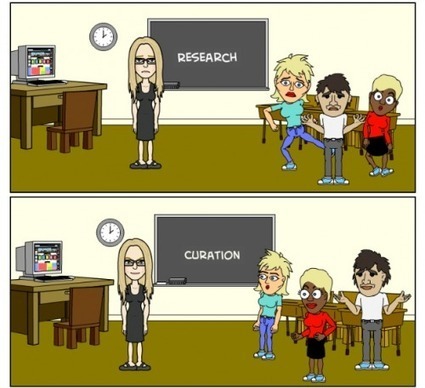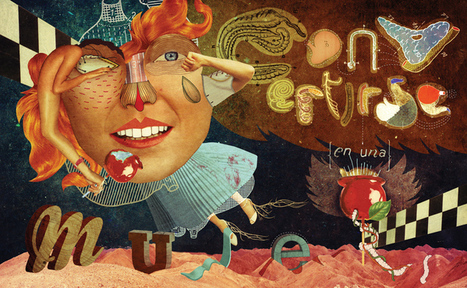Via Robin Good
Get Started for FREE
Sign up with Facebook Sign up with X
I don't have a Facebook or a X account

 Your new post is loading... Your new post is loading...
 Your new post is loading... Your new post is loading...

Maria Lopez Alvarado, MBA's comment,
September 26, 2013 9:05 PM
Mathy: Definitely the time to make some changes...

Maria Lopez Alvarado, MBA's comment,
September 26, 2013 9:08 PM
Diane: I agree, the Flipped Classroom is a great strategy to engage the students!

Maria Lopez Alvarado, MBA's comment,
September 26, 2013 9:08 PM
Diane: I agree, the Flipped Classroom is a great strategy to engage the students!
|

Alfredo Corell's curator insight,
October 3, 2013 5:48 PM
An excellent story for lecturers or teachers thinking in content curation as a tool in their aulas. 
Fiona Harvey's curator insight,
October 8, 2013 2:22 AM
Useful for educators - key digital literacy skill 
johanna krijnsen's curator insight,
December 4, 2013 2:00 PM
content curation and critical thinking skills
Sample Student's curator insight,
May 5, 2015 10:14 PM
We often ask our students to create annotated bibliographies, and this focuses on their capacity to evaluate and make decisions about the validity, reliability and relevance of sources they have found. using Scoop.it, we can ask them to do much the same thing, but they will publish their ideas for an audience, and will also be able to provide and use peer feedback to enhance and tighten up their thinking. This is relevant to any curriculum area. Of course it is dependent on schools being able to access any social media, but rather than thinking about what is impossible, perhaps we could start thinking about what is possible and lobbying for change.
Sample Student's curator insight,
May 5, 2015 10:18 PM
We often ask our students to create annotated bibliographies, and this focuses on their capacity to evaluate and make decisions about the validity, reliability and relevance of sources they have found. Using Scoop.it, we can ask them to do much the same thing. But they will publish their ideas for an audience, and will also be able to provide and use peer feedback to enhance and tighten up their thinking. This is relevant to any age, and any curriculum area. Of course it is dependent on schools being able to access social media. But rather than thinking about what is impossible, perhaps we should start thinking about what is possible, and lobbying for change. Could you use a Scoop.it collection as an assessment task? |





![Developing 21st Century Critical Thinkers [Infographic] | Didactics and Technology in Education | Scoop.it](https://img.scoop.it/CGr5wVjpTk64ukpNkZ52GDl72eJkfbmt4t8yenImKBVvK0kTmF0xjctABnaLJIm9)







An excellent story for lecturers or teachers thinking in content curation as a tool in their aulas.
Useful for educators - key digital literacy skill
content curation and critical thinking skills